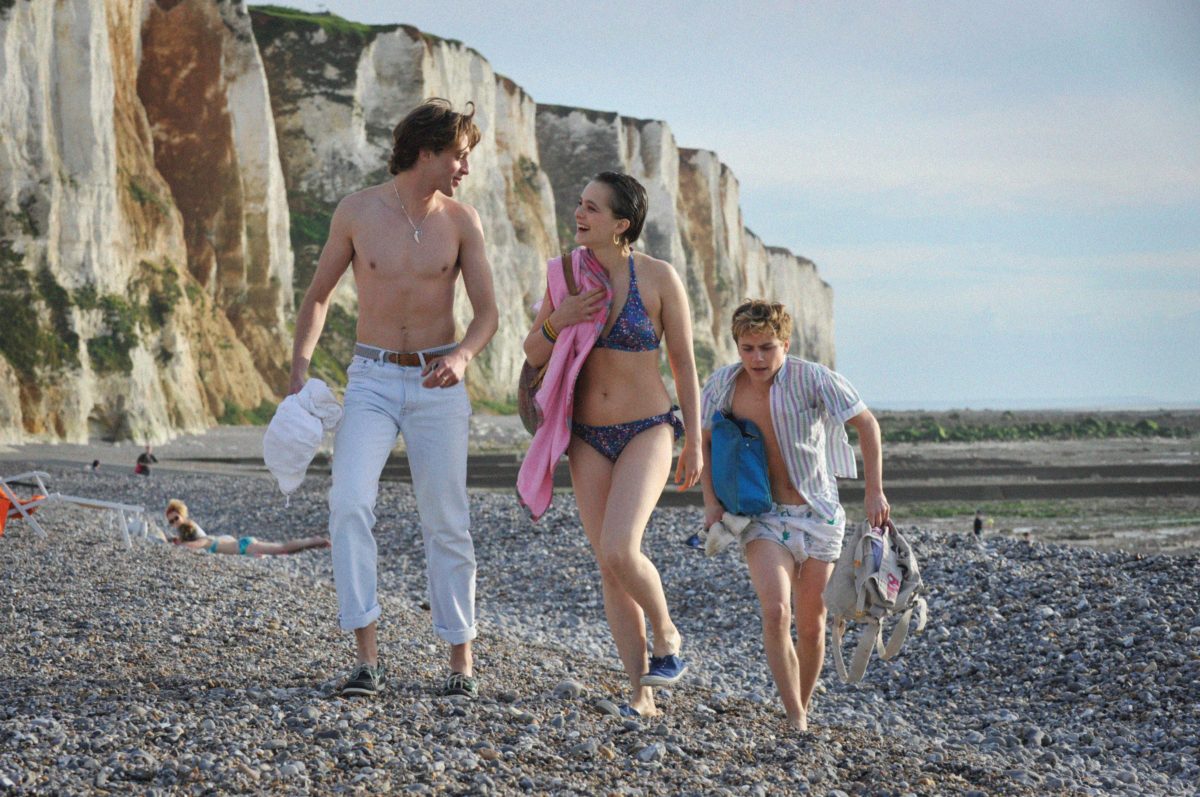
On its surface, Summer of 85 is the story of “how he became a corpse.” Told by protagonist Alex (Félix Lefebvre), who uses a combination of direct address, writing, and recollection to try and reconstruct the unexpected events that leave him on the cusp of a major turning point in his life, the film’s narrative is Alex’s attempt to remember. It gives way to a second story lingering beneath the surface: an attempt to make sense of what it means to grow older.
The latest feature from acclaimed director François Ozon, Summer of 85 is animated by the idea of memory: what we lose, what we remember, and how we choose to record it. Awaiting sentencing for a mysterious crime, Alex is advised by a sympathetic teacher to write down what happened. His ensuing narration introduces characters with phrases like “Enter David” and “Enter Kate” (played by Benjamin Voisin and Philippine Velge, respectively), as if each figure is moving in and out of the drama of his life. Alex first agrees to this exercise as a way to help his case, a way of getting to the bottom of why these things happened, and how he ended up in this situation. As he dives deeper into these events, he tries to understand not only why these things happened, but to make peace with the beginning, and end, of his first love affair — what’s remembered, and what gets lost along the way.

The moments that Alex narrates — the story of the past — are vividly shot and hyper-stylized; like when he and David are at a dance club, the world seems to slow down around them; or when the two of them sit alone together in the mezzanine of a cinema, in their own utopian world. This is a way of highlighting not only the (un)reliability of Alex as a narrator, but also the gulf between the possibility of adolescence and the darkness of the “real world.” Present-day sections, anchored by the lead-up to Alex’s sentencing, and his attempts to write through his past, are grey and dreary, drained of life.
The explicit queerness of Summer of 85 is vital to how it frames coming of age. The film isn’t interested in closets or other traditional queer drama tropes; instead it imbues queerness into everything; from Alex’s utopian memories of his time with David, to the soundtrack, the timeline, and the growing intimacy — both physical and romantic — that the two young men share. Alex refuses to retell his first night with David in any kind of detail, and the eye of the camera — the eye of Alex’s memory — lingers on the shut door, keeping the audience/reader at a safe distance, stopping them from becoming too intimate with Alex himself.

This gap between confession and intimacy is one of the things that makes Summer of 85 something of a tough sell; its reliance on memory can be self-indulgent, but in many ways, that’s the point. Alex, for better and for worse, is a teenager and Ozon displays this for all of its messy imperfection, with the world of Summer of 85 literally revolving around him.
From the response Alex has to David’s bisexuality, to his continual desire to see himself as doing the right thing no matter what, Summer of 85 captures the power of first love, as well as the flaws inherent in memory in a way that’s both fascinating and frustrating. Ozon invites audiences to remember what it was like to be young, in love, and to feel like you’re the center of the universe, the lead character in the high drama of your life, and all the ways that might be (mis)remembered.
Summer of 85 opens June 18 in theaters in New York, Los Angeles, and San Francisco. A national release will follow.
0 Commentaires